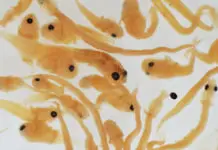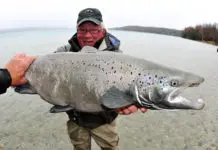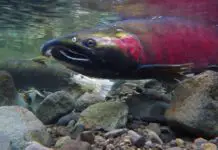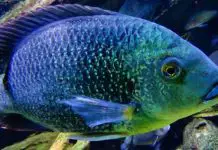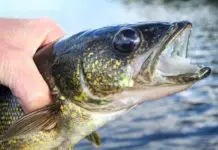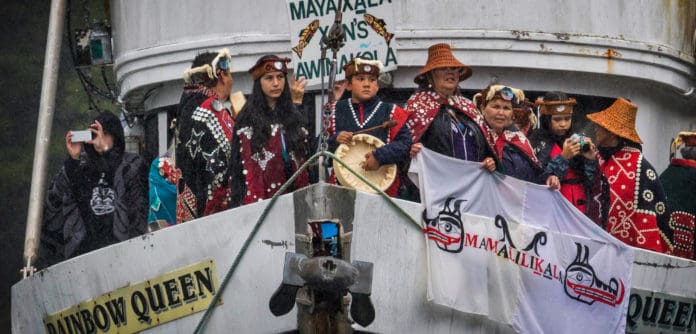
Canada: Well-known First Nation Chief and official of one of three native organizations- the Union of B.C. Indian Chiefs- vice president Bob Chamberlin attempted to launch a class action lawsuit against B.C. salmon farms
He is one of the most vocal and public figures in the on-going dispute by an ever-shrinking number of First Nation individuals that keep trying to get rid of the salmon farms from British Columbian waters. While most First Nations in the Broughton Archipelago- made famous by the activism of Mr. Chamberlin and anti-salmon farm campaigner Alexandra Morton- are working well with the salmon farming industry and have established working and protocol agreements with the Norwegian companies operating in the region, Mr. Chamberlin is carrying on a fight which has taken him to the board rooms and Annual Meetings of the salmon farming companies. His latest attempt through the launch of a class action that alleged that salmon farms in the Broughton Archipelago were causing a decline of local salmon stocks was overturned by the courts last week.
Although the ruling could be deemed to be made based on a technicality, most professional scientists would likely agree that there is little if any grounds to support the allegations made by Mr. Chamberlin. The B.C. Salmon Farmers Association issued the following statement late last week;
A ruling yesterday by the British Columbia Court of Appeal has overturned a December 2010 decision to certify legal action launched by Chief Bob Chamberlin, Kwicksutaineuk/Ah-Kwa-Mish First Nation (KAFN), as a class action lawsuit. “Any decision that has to be made through the courts isn’t ideal for BC’s salmon farmers,” said Mary Ellen Walling, Executive Director of the BC Salmon Farmers Association. “We value communication and dialogue and our members relationships with their First Nations partners are a top priority. We will continue to make ourselves available to those interested in constructive dialogue about our business.”
The certification was initially granted by the chambers judge in 2010; however, it was appealed by the Province of BC and Canada in January 2011. On May 3, 2012, that appeal was successful and the ruling granting the case class action certification was overturned. The plaintiffs alleged in this case that salmon farms in the Broughton Archipelago are the cause of a decline of wild salmon stocks. BC salmon farmers disagree with these allegations. The plaintiffs commenced this action by having it certified as a class action, with a class constituting other First Nations in the area.
Madam Justice Garson disagreed with the certification of class action, saying that it was not clear what objective criteria could be used to determine whether an ‘aboriginal collective‘ would be in the class, and because ‘aboriginal collectives’ do not form a clear judicial person, they do not have the capacity to sue. Her decision was supported by the two reviewing judges. The BC Salmon Farmers Association was granted intervenor status on this case and provided information on salmon farming in the region to the judge. The BCSFA has heard no more about next steps that might be taken by the KAFN.
Another ruling regarding a judicial review application in the Federal Court by Chief Chamberlin and KAFN regarding consultation on two Broughton Archipelago salmon farm licenses was also made on May 3, 2012. This ruling stated that consultation carried out by the Department of Fisheries and Oceans was adequate for the renewal of these two licenses. The BCSFA was not directly engaged in this action, though two of its members (Mainstream Canada and Marine Harvest Canada) were respondents in the case. The BCSFA cannot comment further on this case at this time.























